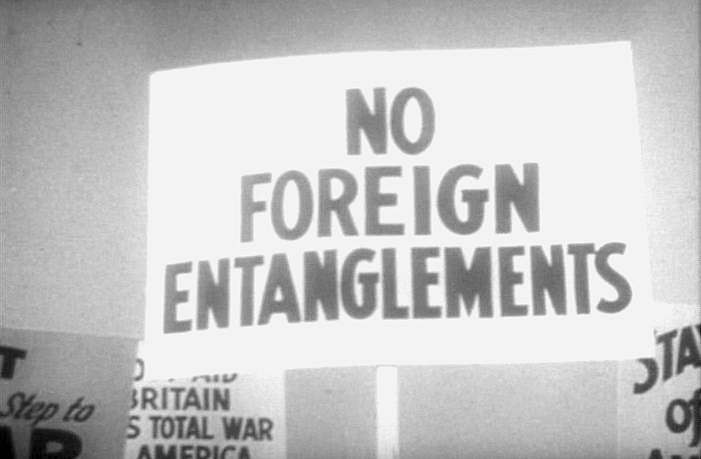
From Joseph I. Lieberman and Joh Kyl, Washington Post: The case for American retrenchment has gained new traction in Washington. Much as in the past, economic problems and public war-weariness have spurred calls from Democrats and Republicans alike for neo-isolationist policies — demands for retreat from the world clothed in the language of fiscal prudence and disinterested realism. Although there may be short-term political benefits in calling for a diminished U.S. role in the world, history shows that retreat comes with substantial long-term costs for our country.
After World War I, disillusionment with war and then the Great Depression brought a widely popular U.S. retreat from internationalism, economic as well as political. But the attack on Pearl Harbor demonstrated that the United States could not avoid the responsibility of engagement with the world in the cause of freedom and democracy.
After World War II, skepticism about the extent of the communist threat led to a sharp reduction in military spending and a willingness to ignore ominous developments along the Pacific Rim and in Eastern Europe. But when communist aggression reached a boiling point on the Korean Peninsula, moral duty and national interests again compelled the United States to lead. The cost of the war that followed certainly exceeded that of effective deterrence and of steadily maintaining U.S. armed forces.
When the Soviet Union fell in 1991, some argued that the United States had fulfilled its obligation to lead the world and had defeated all plausible opponents; defense funding was slashed. Ten years later, the attacks of Sept. 11 reminded us of the risks of assuming that peace will always prevail. . . .
We must not wait for another catastrophe to persuade us of the continuing importance of American internationalism. Regardless of party or ideology, our leaders must forge a new consensus about the U.S. role in the world. That will require engaging with those who disagree to rebuild and reaffirm a bipartisan foreign policy consensus based on the lessons of history. Our country and our world are more secure, free and prosperous when America is prepared to lead. History may repeat itself but only if we allow it.
Joseph I. Lieberman, an independent Democrat, is a former senator from Connecticut. Jon Kyl, a Republican, is a former senator from Arizona. They co-chair the American Enterprise Institute’s American Internationalism Project. (photo: Why We Fight)
Image: why%20we%20fight%204%2029%2013%20no%20foreign%20entanglements.jpg
